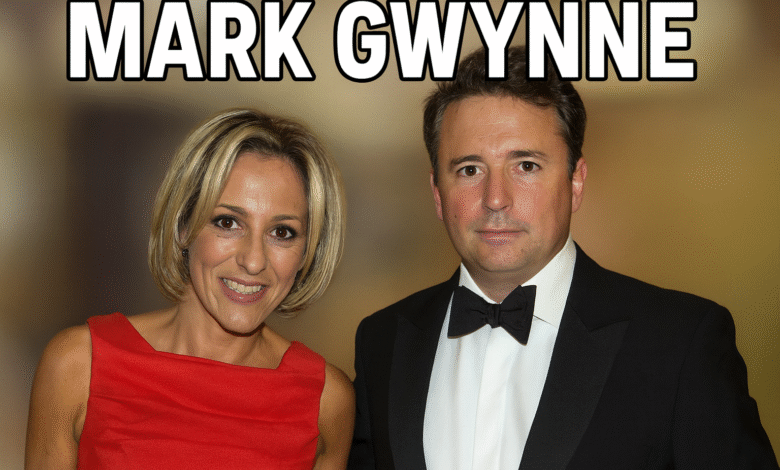Mark Gwynne: A Visionary Force in Modern Business Leadership

In the ever-changing world of business, technology, and healthcare, leaders who can adapt quickly and think strategically are the ones who truly leave a mark. One such figure is Mark Gwynne, a multifaceted professional who has built an impressive career spanning digital transformation, executive coaching, and healthcare leadership. His journey reflects a rare blend of innovation, strategic thinking, and a people-first approach, making him a respected voice in multiple industries.
Early Career: Technology Meets Strategy
Although little is widely known about his formal education, Mark Gwynne’s professional path reveals a sharp understanding of technology and its role in business growth. He served as Chief Information Officer (CIO) at an accident management company in Australia. During his tenure, he directed some of the organization’s most significant digital transformation projects.
His leadership style was not just about implementing new systems; it was about aligning technology investments with overall business goals. By doing so, he created efficiencies, minimized operational risks, and ensured scalability. The result was a more agile organization capable of adapting to market demands while maintaining a high standard of service.
Coaching Leaders to Succeed
Beyond his corporate responsibilities, Mark Gwynne has also dedicated over two decades to business coaching. His clients range from entrepreneurs and small business teams to high-level executives and CEOs. His coaching philosophy revolves around three pillars: clarity, accountability, and sustainable growth.
What sets his coaching apart is his ability to merge strategic and tactical advice. Drawing on more than 30 years of experience as an independent business owner, he relates to the challenges leaders face daily. His coaching sessions encourage executives to take ownership, confront challenges directly, and transform complex decisions into actionable steps. This approach not only develops stronger leaders but also builds more resilient teams.
Leadership in Healthcare
Interestingly, the name Mark Gwynne is also associated with healthcare leadership. Another professional with the same name leads a large faculty physician network, focusing on clinical integration and value-based care. While this is a different person, both share a commitment to innovation and improved outcomes.
In this healthcare leadership role, efforts have been directed toward developing integrated care systems where physicians collaborate across specialties. The result has been enhanced access to care, improved patient outcomes, and more efficient healthcare delivery.
Strategic Vision That Connects All Roles
Across industries, what unites Mark Gwynne’s work is his commitment to purposeful leadership. Whether as a CIO, business coach, or healthcare executive, his decisions revolve around aligning innovation with strategy. He consistently emphasizes that technology and new systems should not exist for their own sake. Instead, they must solve real problems and create tangible value.
For Gwynne, leadership is not only about setting direction but also about inspiring accountability and trust. He believes technology becomes powerful only when it serves people—helping teams function more effectively and enabling leaders to focus on long-term growth.
Modernizing Operations
During his tenure as CIO, Mark Gwynne played a critical role in modernizing organizational infrastructure. He led projects that upgraded core systems, implemented software tools to streamline workflows, and reduced human error. These projects were carefully managed to stay on time and within budget, leaving lasting improvements in efficiency and customer service delivery.
Coaching With Purpose
As a coach, his mission extends beyond giving advice. Mark Gwynne is known for helping clients dismantle tough challenges and rebuild them into achievable goals. His coaching inspires leaders to hold themselves accountable, foster stronger team dynamics, and build cultures of transparency. Leaders who work with him often report increased confidence, stronger decision-making skills, and improved resilience.
Transforming Healthcare Systems
In healthcare, Mark Gwynne’s leadership has helped develop integrated systems that encourage collaboration among providers. These networks of physicians working together across specialties have improved patient experiences and outcomes. His influence has contributed to the evolution of healthcare models that focus on coordination, value, and access.
Core Values and Leadership Style
1. Balancing Innovation With Strategy
Gwynne emphasizes that strategy must always guide innovation. For him, implementing a new tool or system only makes sense if it addresses a genuine challenge. This principle prevents wasted resources and ensures teams remain focused on real objectives.
2. People First
Regardless of his role—whether in corporate IT, coaching executives, or supporting healthcare systems—Mark Gwynne places people at the center. He prioritizes building authentic relationships, encouraging honest communication, and fostering trust. His leadership style strengthens team loyalty and long-term retention.
3. Clear and Measurable Goals
For Gwynne, success is rooted in accountability. He advocates setting measurable goals and monitoring progress regularly. This results-oriented mindset drives individuals and organizations to stay on course and maintain momentum toward long-term achievements.
Why Mark Gwynne’s Work Matters Today
The current business environment moves faster than ever, and leaders are often expected to make decisions with little time to react. In this climate, Mark Gwynne’s approach stands out. He combines calm, strategic thinking with a willingness to challenge leaders in a constructive way.
His ability to bring clarity in chaotic situations, link innovation to business goals, and maintain a people-centric mindset makes him highly relevant in today’s uncertain world. Whether working in a startup or a multinational corporation, his influence sparks real, lasting change.
Looking Ahead
The future appears promising for Mark Gwynne as he continues to contribute across multiple industries.
-
In technology, he is likely to explore new platforms leveraging artificial intelligence and automation.
-
In coaching, he may expand into international leadership programs, helping executives around the world.
-
In healthcare, his focus will likely remain on improving access, quality, and affordability.
Wherever his journey leads, one constant remains: he will continue empowering people, using technology strategically, and maintaining a vision that connects innovation with human progress.
Conclusion: A Model for Modern Leadership
Mark Gwynne represents the type of leader needed in today’s complex, fast-moving business landscape. He demonstrates that leadership is not confined to a title but is reflected in consistent action, vision, and impact. His ability to modernize systems, coach leaders, and transform healthcare proves that great leadership transcends industries.
Above all, his legacy shows that when strategy, innovation, and people are aligned, organizations not only survive change—they thrive.
Frequently Asked Questions (FAQs)
Q1: Who is Mark Gwynne?
Mark Gwynne is a business leader, coach, and technology strategist known for his work in digital transformation, executive coaching, and healthcare leadership.
Q2: What industries has Mark Gwynne worked in?
He has contributed to three main areas: information technology, business coaching, and healthcare systems leadership.
Q3: What is Mark Gwynne’s coaching style?
His coaching emphasizes clarity, accountability, and growth. He helps leaders transform complex problems into actionable steps while encouraging resilience and ownership.
Q4: What makes Mark Gwynne’s leadership unique?
His focus on aligning innovation with strategy, putting people first, and establishing measurable goals distinguishes his leadership across industries.
Q5: What can we expect from Mark Gwynne in the future?
He is expected to further explore AI and automation in tech, expand international coaching programs, and strengthen integrated healthcare models.
Read also: Suki Stephens: From Stage to Drama Education and Her Lasting Influence



